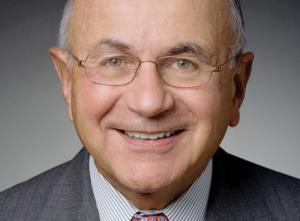FERC Must Act
Carmen Gentile, now practicing as Carmen L. Gentile, PLLC, is a former president of the Federal Energy Bar Association, and has specialized in energy law for almost fifty years, thirty-seven of them with a firm he co-founded, Bruder, Gentile & Marcoux. He has chiefly represented electric companies and investors in nearly all facets of Federal Power Act regulation. In an August 2013 article in PUF, he critiqued the then predominant FERC reliance on discounted cash flow analysis and advocated a multiple-methodology approach, which FERC has now adopted, to determine common equity cost.
The Court of Appeals Emera Maine decision1 has captured industry attention for Federal Power Act (FPA) rulings regarding threshold requirements for sustaining section 206 (16 U.S.C. 824e) base return on equity complaints and placing the ROE within the zone of reasonableness.

However, the Court's emphasis on the application of section 206 rate change jurisdiction only to existing rates also affords the Federal Energy Regulatory Commission an opportunity to reappraise its willingness to initiate seriatim hearings on successive customer complaints against the same ROE, which will no longer be an existing ROE once the first complaint is decided.
The transparent purpose of this "pancaking" of one complaint on top of another, each against the same ROE, is to sidestep the Congressionally mandated fifteen-month limitation on section 206 refunds.
This article critiques FERC's rationale for entertaining pancaked complaints; describes as background the FPA bias favoring existing rates; and explains, in light of Emera Maine insights, the inability of pancaked complaints against the same ROE to support either the establishment of new ROEs or the refund of revenues collected under past, superseded ROEs.

